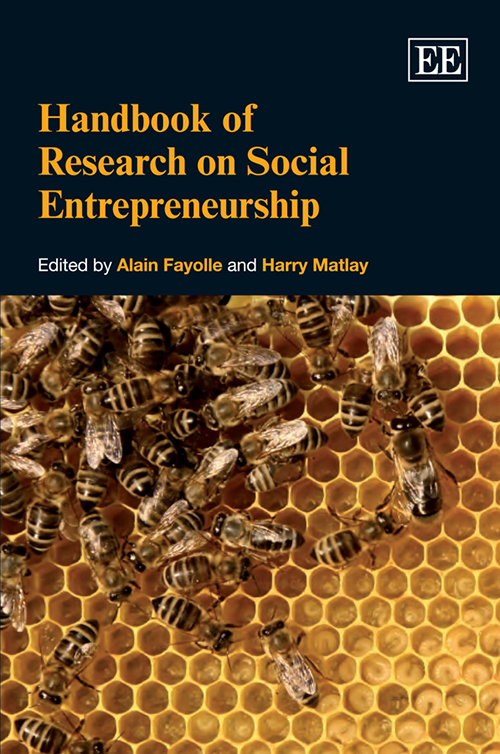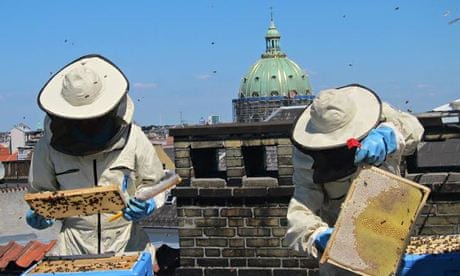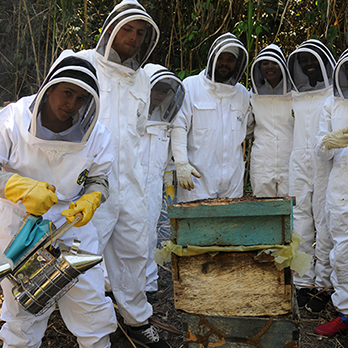Contents
- I. Introduction to Beekeeping and Social Entrepreneurship
- II. Benefits of Beekeeping for Social Entrepreneurship
- III. The Role of Beekeeping in Sustainable Development
- IV. Steps to Start a Beekeeping Social Enterprise
- V. Marketing and Selling Bee Products for Social Impact
- VI. Challenges and Solutions in Beekeeping Social Entrepreneurship
- VII. Frequently Asked Questions about Beekeeping and Social Entrepreneurship
- 1. What is the connection between beekeeping and social entrepreneurship?
- 2. How can beekeeping be a form of social entrepreneurship?
- 3. What are some advantages of integrating social entrepreneurship into beekeeping?
- 4. Are there any specific challenges associated with combining beekeeping with social entrepreneurship?
- 5. How does beekeeping contribute to environmental sustainability?
- 6. Can anyone start a beekeeping social enterprise?
- 7. Are there any certifications or standards for ethical beekeeping practices?
- 8. How can consumers support socially responsible beekeepers?
- 9. What are some potential future developments in this field?
- 10. Can beekeeping be a viable solution for poverty alleviation?
I. Introduction to Beekeeping and Social Entrepreneurship

Beekeeping is an ancient practice that involves the management of honey bees in order to obtain honey, beeswax, and other valuable bee products. Over the years, it has evolved from a simple hobby to a profitable business venture for many individuals around the world. However, beekeeping is not just about producing honey; it also holds immense potential for social entrepreneurship.
Social entrepreneurship refers to the process of using business techniques and practices to address social issues and create positive change in communities. By combining beekeeping with social entrepreneurship, individuals can not only generate income but also contribute to sustainable development and community empowerment.
1. The Benefits of Beekeeping
Beekeeping offers numerous benefits that make it an attractive venture for aspiring entrepreneurs. Firstly, it requires minimal investment compared to other agricultural activities. This makes it accessible even to those with limited resources or land availability.
Secondly, bee products such as honey and beeswax have high market demand both locally and internationally. This provides entrepreneurs with opportunities for income generation through product sales or value-added processing.
Furthermore, beekeeping contributes positively to environmental conservation by promoting pollination of plants and biodiversity preservation. Bees play a crucial role in pollinating crops essential for human food production, contributing significantly to food security.
2. The Intersection of Beekeeping and Social Entrepreneurship
The combination of beekeeping with social entrepreneurship creates a win-win situation where both economic growth and societal well-being are achieved simultaneously.
By engaging in ethical practices such as organic farming methods or providing fair wages to workers involved in various aspects of the value chain (such as hive construction or honey extraction), social entrepreneurs can ensure sustainable livelihoods while preserving natural resources.
Moreover, social entrepreneurship in beekeeping can have a transformative impact on marginalized communities. By providing training and employment opportunities to individuals from disadvantaged backgrounds, beekeeping projects can empower these individuals and improve their socio-economic conditions.
3. Empowering Women through Beekeeping
Beekeeping has proven to be particularly empowering for women in many parts of the world. Traditionally, beekeeping has been considered a male-dominated activity; however, women are increasingly taking up the practice and benefitting from it.
Through beekeeping initiatives, women gain financial independence and enhance their decision-making power within their households and communities. They also acquire new skills such as hive management or honey processing that can lead to further income-generating opportunities.
In addition to economic empowerment, beekeeping also provides a platform for women’s social integration and networking. Women engaged in beekeeping often form support groups or cooperatives where they exchange knowledge, share experiences, and collectively address common challenges.
In conclusion, the combination of beekeeping with social entrepreneurship presents a unique opportunity for individuals seeking both financial success and positive community impact.
By harnessing the potential of bees not only as honey producers but also as agents of change in society,
entrepreneurs can contribute towards sustainable development while empowering themselves
and uplifting marginalized communities.
II. Benefits of Beekeeping for Social Entrepreneurship

Beekeeping has emerged as a valuable tool for social entrepreneurship, offering numerous benefits to both individuals and communities. By combining the principles of business with social impact, beekeeping initiatives create opportunities for sustainable development and positive change.
1. Economic Empowerment
Beekeeping can serve as a catalyst for economic empowerment in various ways. Firstly, it provides an additional source of income for individuals and communities through the sale of honey, beeswax, pollen, propolis, and other bee-related products. Moreover, by promoting local entrepreneurship and self-employment opportunities, beekeeping projects contribute to poverty alleviation by creating sustainable livelihoods.
2. Environmental Conservation
Beekeeping plays a crucial role in environmental conservation by supporting pollination activities. Bees are vital pollinators that significantly contribute to plant reproduction and biodiversity preservation. Through their cross-pollination efforts, bees enhance agricultural productivity while safeguarding ecosystems from degradation.
3. Community Development
Beekeeping projects foster community development through collaboration and knowledge sharing among participants. As people come together to learn about beekeeping techniques and best practices, they build strong networks that promote unity within the community. This collective effort not only enhances social cohesion but also leads to increased resilience against external challenges.
4 . Health Benefits
The consumption of honey has been associated with numerous health benefits due to its antioxidant properties and potential antibacterial effects. By engaging in beekeeping activities that result in the production of high-quality honey free from harmful additives or contaminants, individuals can improve their overall well-being while also contributing positively to public health outcomes.
5 . Educational Opportunities
Beekeeping offers valuable educational opportunities, particularly for young people. By involving children and adolescents in beekeeping initiatives, they gain practical knowledge about environmental stewardship, biology, and sustainable agriculture. This hands-on learning experience not only equips them with essential life skills but also instills a sense of responsibility towards the environment.
In conclusion, beekeeping holds significant benefits for social entrepreneurship. It empowers individuals economically, conserves the environment through pollination activities, fosters community development and unity, promotes health benefits through honey consumption while creating educational opportunities for future generations. By embracing beekeeping as a means of social enterprise, we can contribute to a more sustainable and inclusive society.
III. The Role of Beekeeping in Sustainable Development

Beekeeping plays a significant role in sustainable development, contributing to various aspects of economic, social, and environmental well-being. This ancient practice not only provides us with delicious honey but also offers numerous benefits that extend beyond the honeycomb.
Promoting Biodiversity and Ecosystem Health
Beekeeping actively supports biodiversity and ecosystem health by facilitating pollination. Bees are vital pollinators, enabling the reproduction of flowering plants through the transfer of pollen from male to female flower parts. This process ensures the growth of fruits, vegetables, nuts, and seeds necessary for human consumption as well as for wildlife habitats. By maintaining healthy bee populations through beekeeping practices, we safeguard the balance of ecosystems and protect countless plant species.
Enhancing Food Security
With a growing global population and increasing food demand, beekeeping plays a crucial role in enhancing food security. Pollination services provided by bees contribute to agricultural productivity by improving crop yields and quality. Many crops depend on insect pollinators like bees for successful fertilization. By integrating beekeeping into agricultural systems or promoting it in rural areas where agriculture is prevalent, we can ensure a more stable food supply chain.
Poverty Alleviation and Empowerment
Beekeeping has proven to be an effective tool for poverty alleviation and empowerment in many communities worldwide. It offers income-generating opportunities for small-scale farmers or marginalized groups who may lack access to traditional job markets or face economic challenges due to limited resources or environmental conditions. Beekeepers can sell honey products locally or internationally while also benefiting from other hive-derived products such as beeswax or propolis.
Environmental Conservation
Beekeeping aligns with the principles of environmental conservation by promoting sustainable land management practices. As beekeepers care for their bees, they often adopt organic or agroecological farming methods that minimize the use of synthetic pesticides and herbicides harmful to pollinators. This environmentally friendly approach not only protects bees but also contributes to the overall health of ecosystems, conserving soil fertility and minimizing water contamination.
Education and Awareness
Beekeeping serves as an excellent educational tool to raise awareness about the importance of pollinators, biodiversity, and environmental sustainability. It offers opportunities for knowledge sharing within communities or through organized workshops and training programs. By involving people in beekeeping activities, we can foster a deeper understanding of interconnectedness in nature while encouraging responsible stewardship of our environment.
In conclusion, beekeeping plays a crucial role in sustainable development by promoting biodiversity and ecosystem health, enhancing food security, alleviating poverty, supporting environmental conservation efforts, and fostering education and awareness. Embracing this ancient practice allows us to protect natural resources while reaping numerous economic benefits. So let’s appreciate the humble honeybee for its invaluable contribution to both our plates and our planet!
IV. Steps to Start a Beekeeping Social Enterprise

Starting a beekeeping social enterprise can be an exciting and rewarding venture that combines your passion for beekeeping with making a positive social impact. Here are the key steps you need to take to get started:
1. Define Your Mission and Objectives
The first step is to clearly define the mission and objectives of your beekeeping social enterprise. Determine what specific social or environmental issue you aim to address through your enterprise, such as promoting sustainable agriculture or supporting local communities.
2. Conduct Market Research
Before diving into starting your enterprise, it’s crucial to conduct thorough market research. Identify potential customers, competitors, and trends in the beekeeping industry. This will help you understand the demand for honey products, pollination services, or any other offerings you plan on providing.
3. Develop a Business Plan
Create a comprehensive business plan that outlines your organizational structure, marketing strategies, financial projections, and operational processes. Your business plan should also include details on how you will measure and track the social impact of your enterprise.
4. Secure Funding
Funding is essential for launching and sustaining your beekeeping social enterprise. Explore various funding options such as grants from foundations or government agencies focused on entrepreneurship or sustainable initiatives. You can also consider crowdfunding campaigns or seeking investment from impact investors.
5. Establish Partnerships
Cultivate partnerships with other organizations working towards similar goals in order to leverage their expertise and resources. Collaborate with local farmers’ associations, environmental NGOs, educational institutions, or even government entities that support sustainable agriculture initiatives.
6 Invest in Training and Equipment
To ensure the success of your beekeeping enterprise, it’s important to invest in proper training and equipment. Attend beekeeping workshops or courses to enhance your knowledge and skills. Purchase necessary supplies such as beehives, protective gear, and tools required for honey extraction.
7. Set Up Production Facilities
Create a suitable production facility where you can process honey and other bee-related products. Ensure that the facility meets all health and safety regulations while also considering sustainability practices such as waste management or energy efficiency.
8. Market Your Products
Develop effective marketing strategies to promote your beekeeping products or services. Utilize social media platforms, create a website, participate in local farmers’ markets or eco-friendly events to raise awareness about your enterprise and attract customers.
9. Measure Social Impact
Evaluate the social impact of your beekeeping social enterprise by regularly monitoring key performance indicators (KPIs) aligned with your mission objectives. Track metrics such as job creation, income generation for local communities, improvements in biodiversity conservation, or reduction in pesticide use.
10.Scale Up and Expand
As your enterprise grows and becomes sustainable, consider scaling up operations or expanding into new markets. Explore opportunities for exporting honey products internationally or establishing partnerships with eco-tourism agencies.
By following these steps diligently while staying true to both the principles of social entrepreneurship and best practices in beekeeping, you will be well on your way to running a successful beekeeping social enterprise that makes a meaningful difference in society while supporting environmental conservation efforts.
Remember: Bee passionate about bees!
V. Marketing and Selling Bee Products for Social Impact
Marketing and selling bee products can be a powerful way to create social impact while also generating revenue. By effectively promoting these products, beekeepers can not only support their own livelihood but also contribute to the economic development of their communities. Here are some strategies to market and sell bee products for maximum social impact:
1. Highlight the Sustainable Practices
One of the key selling points of bee products is their association with sustainable practices. Consumers today are increasingly conscious about supporting environmentally friendly initiatives. Therefore, it is important to emphasize how your beekeeping operation follows sustainable methods such as organic farming, natural hive management, and minimal use of pesticides or chemicals.
2. Educate Consumers about Bee Conservation
Bee populations worldwide are facing significant threats due to habitat loss, pesticide use, climate change, among other factors. As a socially responsible beekeeper, it is essential to educate consumers about these challenges and explain how purchasing your bee products directly contributes to conservation efforts.
3. Collaborate with Local Communities
To maximize social impact, consider collaborating with local communities in marketing and selling your products. This could involve partnering with local artisans who can create unique packaging or developing partnerships with local stores or farmer’s markets that prioritize supporting small-scale producers.
4. Engage in Digital Marketing
In today’s digital age, having a strong online presence is crucial for any business endeavor – including marketing bee products for social impact purposes. Utilize various digital marketing strategies such as search engine optimization (SEO), content creation on blogs or websites that focus on sustainability or natural health solutions, and engaging customers through social media platforms.
5 Ongoing Customer Engagement through Storytelling
Storytelling is a powerful tool to engage customers and create an emotional connection with your bee products. Share stories about the journey of your beekeeping operation, the positive impact it has had on your community, and how purchasing these products contributes to supporting sustainable livelihoods. This personal touch helps build trust and loyalty among consumers.
6. Offer Educational Workshops or Events
Organize educational workshops or events related to beekeeping, honey production, or the benefits of bee products. These activities not only raise awareness but also provide an opportunity for direct interaction with potential customers. It allows them to understand the value of bee products and their role in creating social impact.
By implementing these marketing strategies, you can effectively promote and sell your bee products while simultaneously making a positive difference in society. Remember that authenticity, transparency, and genuine concern for social impact are key elements that resonate with consumers who seek purposeful purchases.
VI. Challenges and Solutions in Beekeeping Social Entrepreneurship
Beekeeping social entrepreneurship presents various challenges that entrepreneurs in this field need to address in order to ensure the success and sustainability of their ventures. Understanding these challenges and implementing effective solutions is crucial for beekeepers who aim to make a positive impact on both the environment and society.
Limited access to resources
One common challenge faced by beekeepers engaged in social entrepreneurship is limited access to essential resources such as land, equipment, and capital. Without these resources, it can be difficult for beekeepers to establish or expand their operations. To overcome this challenge, partnerships with local communities, non-profit organizations, or government agencies can be formed to gain access to land or secure funding through grants or loans.
Poor market infrastructure
In some regions, there may be a lack of proper market infrastructure for selling honey products. This poses a significant challenge for social entrepreneurs who rely on the sale of honey as their primary source of income. One solution is for beekeepers to collaborate with other local producers or cooperatives that specialize in marketing agricultural products. By pooling resources together, they can build a stronger market presence and collectively negotiate better deals with potential buyers.
Climate change impacts
The effects of climate change pose a threat not only to bees but also the entire ecosystem they support. Shifts in weather patterns can disrupt flowering seasons and affect honey production negatively. Beekeepers practicing social entrepreneurship must adapt by implementing sustainable farming practices that promote biodiversity conservation while mitigating climate-related risks through measures such as hive management techniques and diversification into other forms of pollination services.
Lack of technical knowledge
Beekeeping requires specialized skills and knowledge about hive management techniques, pest control measures, honey extraction methods, and product processing. However, many social entrepreneurs may lack access to formal training or technical expertise. One solution is to establish partnerships with academic institutions or experienced beekeepers who can provide training and mentorship programs. This knowledge transfer will empower entrepreneurs and ensure the adoption of best practices in beekeeping.
Social stigma
Despite the importance of bees for pollination and ecosystem health, there can still be a social stigma surrounding beekeeping due to fear or misconceptions about bees. Overcoming this stigma requires educating local communities about the benefits of beekeeping, honey production, and its positive impact on livelihoods, food security, and environmental sustainability. Engaging in community outreach programs, organizing workshops or events can help dispel myths surrounding bees while promoting their vital role.
Overall, addressing these challenges through innovative solutions is essential for the success of beekeeping social entrepreneurship initiatives. By overcoming limited resources, poor market infrastructure, climate change impacts, lack of technical knowledge, and social stigmas associated with bees and honey production – entrepreneurs can make a significant positive impact on both societies’ well-being as well as ecological sustainability.
Remember that each section should be optimized for SEO by incorporating relevant keywords naturally throughout the text while maintaining readability and providing valuable information to readers searching for content related to beekeeping social entrepreneurship challenges and solutions.
VII. Frequently Asked Questions about Beekeeping and Social Entrepreneurship
Beekeeping and social entrepreneurship are interconnected through their shared focus on creating positive social impact while also addressing environmental concerns. Social entrepreneurs in the field of beekeeping aim to leverage the economic potential of bee products, such as honey and beeswax, to empower local communities, promote sustainable practices, and contribute to biodiversity conservation.
Beekeeping as a form of social entrepreneurship involves not only managing beehives but also exploring innovative ways to market and sell honey or other by-products. By establishing fair trade practices, supporting local farmers or indigenous communities, providing training opportunities, or reinvesting profits into community development projects, beekeepers can create sustainable business models that generate both economic benefits and positive societal change.
The integration of social entrepreneurship into beekeeping offers numerous advantages. Firstly, it provides income generation opportunities for marginalized groups or economically disadvantaged communities who may lack access to traditional employment options. Secondly, it promotes environmental stewardship by encouraging sustainable agricultural practices that protect pollinators like bees while cultivating high-quality organic products.
Yes, there can be various challenges when combining these two fields. One common challenge is accessing resources and funding required for initial setup costs such as acquiring beehives or equipment for processing honey. Additionally, marketing honey produced through ethical practices might pose a challenge due to competition from mass-produced alternatives available at lower prices in mainstream markets.
5. How does beekeeping contribute to environmental sustainability?
Beekeeping contributes to environmental sustainability by supporting pollinator populations and promoting biodiversity. Bees play a crucial role in pollinating flowering plants, including those that are essential for food production. By maintaining healthy beehives and providing suitable habitats, beekeepers actively contribute to the preservation of ecosystems and the protection of endangered plant species.
Yes, anyone with an interest in beekeeping can start a social enterprise focused on bees and their products. However, it is important for aspiring entrepreneurs to have the necessary knowledge about beekeeping practices, understand local regulations, and consider factors like land availability or access to resources before embarking on this endeavor.
7. Are there any certifications or standards for ethical beekeeping practices?
Yes, several organizations offer certifications or standards for ethical beekeeping practices. For example, the Natural Beekeeping Trust provides guidelines for organic honey production that prioritize environmentally friendly methods while ensuring the welfare of bees throughout their lifecycle. The Fairtrade certification also sets standards for fair trade practices within the industry.
Consumers can support socially responsible beekeepers by purchasing honey or other products from certified organic or fair trade sources. By choosing ethically produced honey instead of mass-produced alternatives, consumers directly contribute to sustainable farming practices while supporting initiatives that empower marginalized communities involved in ethical apiculture.
9. What are some potential future developments in this field?
The field of combining social entrepreneurship with beekeeping is constantly evolving as more individuals recognize its potential impact on both society and the environment. One potential future development could involve greater collaboration between different stakeholders such as NGOs, governments, and businesses to create supportive ecosystems for sustainable beekeeping initiatives. Additionally, advancements in technology may pave the way for innovative solutions in hive management or honey processing, further enhancing the viability of social entrepreneurship within beekeeping.
10. Can beekeeping be a viable solution for poverty alleviation?
Beekeeping has the potential to be a viable solution for poverty alleviation, particularly in regions where suitable conditions exist and there is demand for honey or related products. By providing income opportunities and fostering self-reliance among marginalized communities, beekeeping social enterprises can contribute to poverty reduction efforts while also addressing environmental sustainability goals.

Andrew Boyer is an accomplished individual with a deep-rooted passion for bees and their conservation. Born and raised in a small town in Oregon, Andrew developed an early fascination with nature and the environment. He pursued his education at the prestigious University of Oregon, where he obtained a Bachelor’s degree in Environmental Science with a specialization in Entomology. During his time at university, Andrew conducted extensive research on the behavior and ecological impact of bees, earning him recognition from his peers and professors. His dedication to the field led him to internships at local beekeeping associations, where he honed his skills in hive management and honey production. Andrew’s expertise in beekeeping and his commitment to environmental sustainability make him a valuable asset in the conservation of these vital pollinators.
